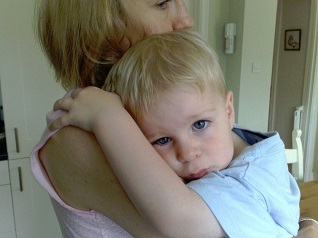“Are you a fat, tall, allergy-prone leader? Blame your siblings.” No this isn’t meant to be a provocative insult, it’s the promotional heading for an article in the New Scientist this month.
“Chance inheritance: The subtle power of birth order” is an article by Lesley Evans Ogden and if you read or subscribe to the New Scientist you can read the full copy here.
Lesley Evans Ogden is a freelance journalist living in Vancouver, Canada with a passion for finding quirky and unique angles on science news.
The abstract reads:
THE psychiatrist Alfred Adler, a contemporary of Sigmund Freud, was convinced that our place among our siblings influences what he termed “style of life”. Eldest children, he argued, are more likely to be neurotic and authoritarian as a result of younger siblings displacing them from their king-of-the-castle position and burdening them with extra responsibilities. Youngest children are spoiled and lack empathy; only middle children are even-tempered and successful, albeit more rebellious and independent, he asserted. Perhaps it was no coincidence that Adler himself was the second child of seven.
His thinking struck a chord. Interest in birth order and its possible consequences grew rapidly in the early 20th century, spawning a new field of research. In the 1980s, however, there was a backlash against the idea, and most of the early studies are now discredited. But in recent years, the pendulum has swung back, with compelling research revealing the importance… That’s all we’re going to get for free folks.
You’ll have to subscribe to the New Scientist to read this in full.
It got me thinking. Are allergies in any way linked to our place in the family? Something we have no control over what-so-ever. In my own family, I’m the bossy one, not quite a leader in every sense and though I’m not fat or tall I am very allergy prone. But am I neurotic and authoritarian? I don’t think so, but I did feel the burden of responsibility and the injustice of fighting many battles only to watch my siblings sail through two and four years before me with new priviliges easily won thanks to my hard work.

Have my brother and sister got away with the allergy fight.
It seems the younger the better.
My sister, the middle one, is very even tempered and pretty successful, NOT rebellious and VERY independent.
However she is also slightly intolerant to dairy and has eczema and asthma with a pretty well treated grass allergy.
My brother on the other hand, the youngest of the three, isn’t really spoilt in the true sense of the word, none of us were really, though he did seem to get away without doing the washing up, chores etc. He does have empathy and is a very sensible, thoughtful chap. He gets away with no allergies at all, the lucky swine.
(Look who isn’t looking at the camera…)
So, is there any truth in this hypothesis? Is the eldest child more likely to have allergies? and why might this be? Is the stress and pressure of being the most responsible child the reason for any of our strange broken IgE related allergic reactions? Do the second, third and younger siblings benefit from better genetics and a more comfortable place in the family hierarchy?
Whether there is any truth in these studies or not, it doesn’t really help us elder, neurotic, bossy allergic adults but it’s fascinating. If it’s true is there any way we can prevent these characteristics from taking over and in particular, stem the increase in allergic first children.
Do you have kids with allergies? Is the eldest more likely to have allergies? Is there any truth in this? and what can we eldest siblings do about it?












I always thought, from a naturopathic point of view Ruth, that younger siblings were more prone to illness. The thinking is that, by then, the mother is more toxic generally and has less left to ‘give’ the younger child in terms of nutrition etc, especially if she has several children quite quickly. Of course, the reverse would be true if the mum was more healthy when she conceived later children than when she was younger. Interesting.
I guess like all these things, if there is a family who proves this theory there is another who disproves it. My view is that it’s more likely to do with genetics and external life influences like stress, pollution, chemicals, drugs, pesticides, additives, more diagnosis, less for the immune system to work on… I could go on. Interesting though.